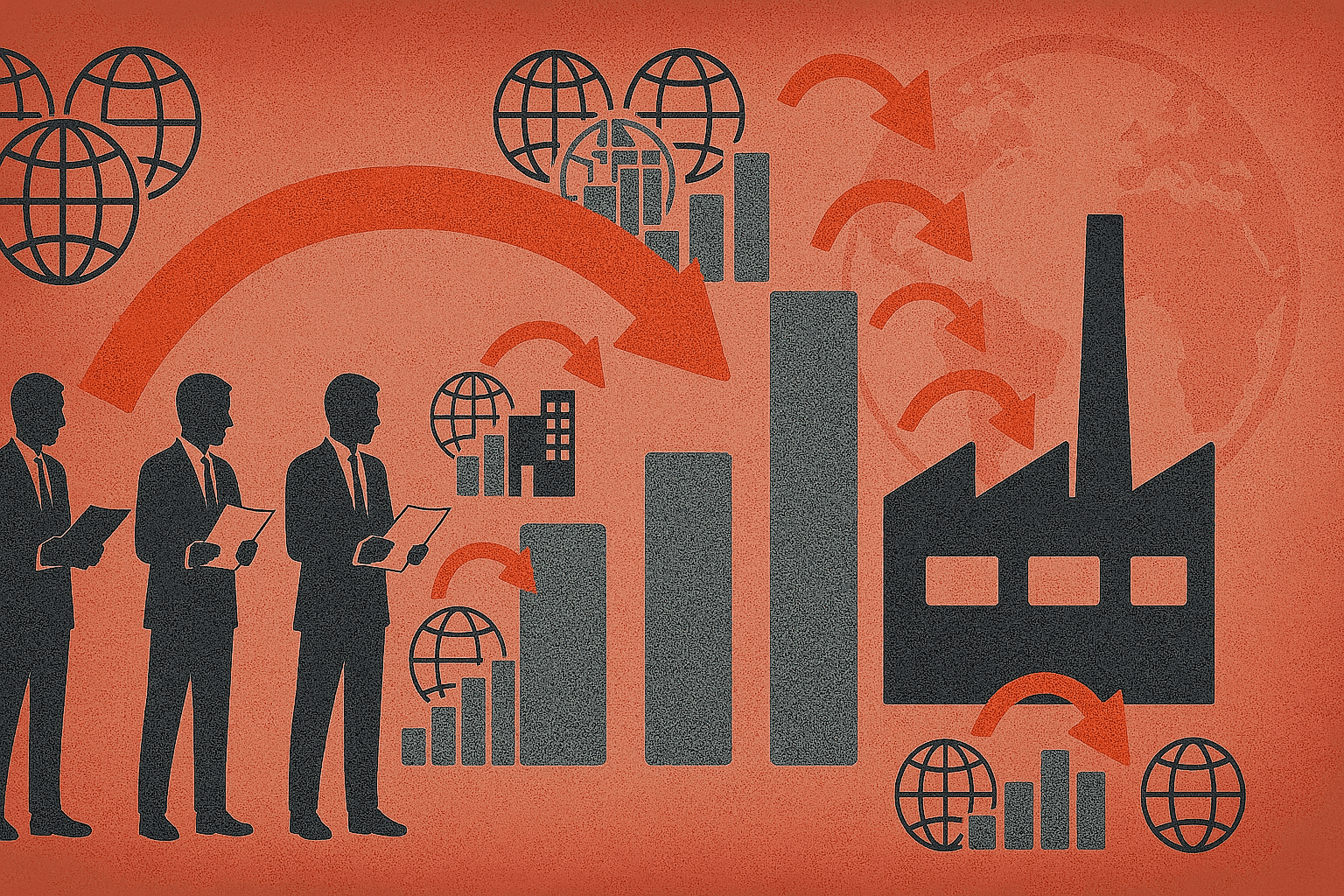In recent years, a deep divide has emerged between China’s development model and that of Western countries.
While Beijing has been bringing strategic industrial groups — from rare earths to semiconductors, from energy to transportation — back under state control, the West continues to entrust its productive structure to large private conglomerates, intervening only through market-based instruments such as tariffs, tax incentives, and reshoring policies.
At first glance, both strategies seem aimed at protecting economic sovereignty. Yet in practice, the outcome is very different.
China has chosen the path of direct control, recentralizing ownership and governance of major groups. The United States and Europe, instead, have maintained a decentralized and privatized system in which multinationals continue to reorganize themselves according to their own global profit logic.
Multinationals as autonomous centers of power
In the Western model, large private groups are no longer mere economic actors: they have become autonomous centers of reorganization for global production and finance.
Their decisions on investment, delocalization, or internal pricing can alter entire sectoral balances, shifting capital and employment from one continent to another in a matter of months.
All this occurs without public coordination and often in response to temporary incentives, speculative pressures, or changes in interest rates.
In such a context, even a modest shift in a major group’s strategy can create ripple effects across the real economy, financial markets, and monetary policy.
Crises “triggered” by private reorganizations
These are what can be called induced crises: economic disruptions not caused by external shocks (such as wars or pandemics) but by internal dynamics within the private production system.
When a multinational restructures, scales back production in one country, or shifts its supply chain, the impact does not remain confined to its own accounts — it propagates along supply chains, reduces aggregate demand, and alters international financial flows.
Unlike China — where the State can steer such processes — the West can only react ex post, through emergency interventions that often fail to address the structural cause of the crisis: the total freedom of reorganization enjoyed by large private groups.
A systemic vulnerability
This situation now represents one of the most serious systemic risks for Western economies.
The apparent freedom of the global market translates into a real dependency on a few actors concentrating within themselves productive, financial, and decision-making functions.
It is a form of “private sovereignty” that escapes democratic control and makes economic policies increasingly reactive and less preventive.
When a group decides to reallocate capital or alter its supply chain, entire national systems can be destabilized.
And since these decisions are driven by immediate profit rather than collective stability, crises become endogenous — generated from within the very heart of the global economy.
Toward a new theory of stability
To understand and anticipate these dynamics, we must rethink the traditional categories of “market” and “competition.”
As highlighted by the theory of the “One-Contracting Party Apparent Economy,” the formally autonomous companies that make up a multinational group do not act as independent entities but as parts of a single economic organism that sets its own prices, supplies, and internal financial flows.
In this perspective, the real challenge for the West is not merely to compete with China’s state-controlled model, but to rebuild regulatory and monitoring mechanisms capable of limiting the destabilizing power of large private structures and preventing the systemic crises they themselves may generate.



